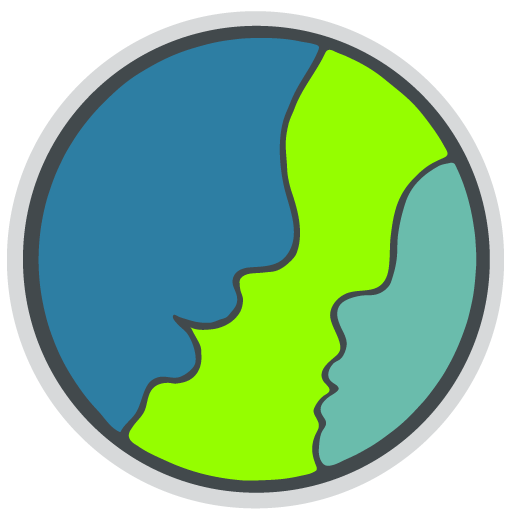By Kathy Schommer
I feel like I’m drowning.” It was 7:00 a.m. on a weekday morning and my husband had just left for work. I was already sobbing on the phone to my mother, 1,800 miles away in North Dakota. My then seven-month-old twin girls were bouncing away in their ExerSaucers. “I feel like I am treading water and trying so hard to keep my head up, but I keep sinking further down,” I cried to my mom. ”I’m trying to come up for air, but I feel like I can’t catch my breath.”
It sounded cliché even to me as I said the words out loud, but it was exactly the way I was feeling. I had been “swimming” for seven months straight without a life preserver, and boy, was I tired. I knew motherhood was supposed to be exhausting and emotionally draining, especially the infant stage. I had read about middle-of-the-night feedings, teething, developmental milestones, sleep issues, and many other parenthood struggles. I told myself I could handle it. Every other parent does, right? I kept telling myself, “Things will get better when…”. Things will get better once they reach their “due date” (they were born 6 weeks premature). Things will get better once I stop pumping breast milk obsessively. Things will get better once they sleep through the night. Things will get better once they can sit up on their own. Things will get better when my family is here to visit and help. Except none of these things made me feel better. I was still not eating much, and had dropped 20 pounds from my pre-pregnancy weight. I was still waking up at random times throughout the night (not from the babies) and often not able to fall back asleep. I was still hyper-vigilant about EVERYTHING. I was irritable. I was angry. I was crying a lot. I thought I wasn’t doing right by my children, like I was failing at motherhood. I dreaded my husband leaving us for work every morning, to the point of tears. I felt like others couldn’t care for my girls as well as I could, and was difficult to ask for and accept help.
I thought I knew the signs of postpartum depression. Having a history of anxiety and depression, going through fertility treatment to conceive our girls, and expecting twins, I did the research. I knew I had a higher risk for developing PPD. I read about the signs and what to look for. So why did it take me so long to recognize it? I have learned so much in my journey through PPD and have done a lot of self-reflection, and what I have come to understand about postpartum mood disorders is that they look different for every parent. And even those who feel so prepared for the postpartum period can miss it. In my case, I attributed so many of my symptoms to being a new, worried, stay-at-home mother of premature twins. I justified my excessive sanitation habits to the fact I had premature babies. I told myself I was so vigilant about their sleep because I needed to keep them on the same schedule to stay sane. I figured I felt so lonely and sad because I was 1,800 miles away from family, my husband worked 60 hours per week, and I rarely left the house due to the chaos of twins. I assumed I felt frustrated because I was used to working full-time and feeling accomplished, and now I was adjusting to the slow, methodic, and sometimes unpredictable life of caring for two infants 24 hours a day.
All of these behaviors are justifiable to a degree, I understand that. Of course, I would feel lonely and isolated, many moms do. Of course I want my twins on the same schedule, many parents of multiples do. Of course this new motherhood thing was difficult, isn’t it for most people? But when my behavior and symptoms began to get in the way of caring for my children and myself, the metaphorical light bulb finally lit up. I needed a life preserver. I needed help. I got on medication. My wonderful parents came to help us. My husband was able to take some extra time off of work. I took some breaks from the baby monitor and night feeding shifts. I started to give myself a little grace. I did some research and discovered that my symptoms were more likely attributed to postpartum anxiety and obsessive-compulsive disorder, a much less talked about postpartum mood disorder. And perhaps most importantly, I talked to others and found out I’m not alone.
There is no textbook case of postpartum depression, anxiety, or any other perinatal mood disorder. The way one parent experiences symptoms can be completely different from another. Each parent may seek and find solace in different forms of treatment. Ultimately what matters is that you recognize the symptoms and you get the help you need, whether that’s at three days, two months, or a year (or more) postpartum. Don’t be afraid to talk to others and seek help. Experiencing a postpartum mood disorder is nothing to be ashamed of. In fact, I find the parents who have gone through these experiences to be some of the strongest people I know. If you know a parent struggling during the postpartum period, speak up. Help them connect the dots, and tell them you are there to support them. Becoming a parent is a vulnerable time, and community support is integral to the health of our families. We don’t expect parents to care for their children all alone, so neither should we expect parents to care for themselves without help. We can all make families stronger together. Connect the dots. Get help. Reach out to other parents. Maternal mental health matters, and so do you!

1 thought on “Coming Up for Air”